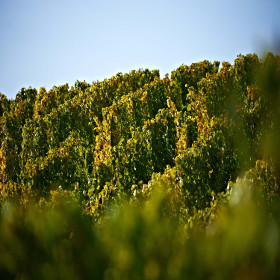Winery Georg Gustav Huff
The winery Georg Gustav Huff looks back on more than 350 years of winemaking tradition. Passing on experience and knowledge from generation to generation is an invaluable asset and one of the foundations of success. At the moment, Dieter Huff and the sons Daniel and Stefan Huff are responsible for the development of the wines. Helga and Stefanie Huff look after the customers in the tasting room and on the telephone. The best locations are in the Red Slope. This barren soil produces particularly fruity and mineral wines. The company focuses on innovation and tradition, with healthy and fully ripe grapes in the focus.
On the estate only German is spoken.















